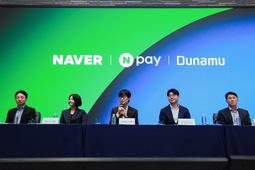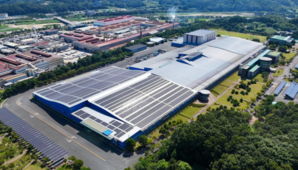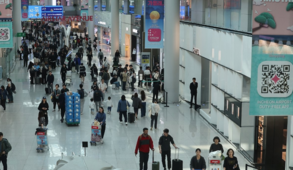
[News Space=Reporter seungwon lee] As the U.S. food authorities have officially announced the complete elimination of petroleum-based synthetic colorings (artificial dyes), major domestic food companies that have entered the U.S. market are faced with the situation of having no choice but to undertake large-scale ingredient renewal and labeling redesign.
In particular, domestic food companies with a high proportion of exports to the U.S., such as Orion, Lotte Confectionery, Nongshim, and Binggrae, are expected to be most directly affected.
US synthetic colorant regulations and their impact on domestic food companies
The U.S. FDA and the Department of Health and Human Services (HHS) announced that nine types of petroleum-based synthetic colors, including Red No. 3, Blue No. 1, Red No. 40, and Yellow No. 5, will be phased out from food by 2027. These colors have been widely used in various processed foods, including cereals, beverages, candies, and snacks, and are also used in many products of domestic food companies that have entered the U.S. market.
The domestic food industry officially states that it “does not use the problematic artificial coloring,” but within the industry, there are claims that “products exported to the U.S. often contain the artificial coloring in question.”
This is a result of the US' past policy of preferring synthetic pigments over natural pigments, and major domestic food companies have been developing separate recipes tailored to the US market.
A direct hit to confectionery companies such as Orion, Lotte Confectionery, and Binggrae?
Orion is exporting various snacks, including 'Choco Pie', 'Pocachip', and 'Ogamja', to Korean and Asian supermarkets in the US. Some of these products have used petroleum-based synthetic pigments such as Red No. 40 and Yellow No. 5 to implement colors, and it is inevitable to readjust the ingredients due to strengthened regulations in the US.
Lotte Confectionery's representative product lines that are popular in the US market, such as 'My Chew', 'Xylitol Gum', and 'Pepero', contain some synthetic pigments in the red, blue, and yellow series. Lotte Confectionery has already replaced synthetic pigments with natural pigments in products for export to Europe, but the same level of renewal is required in the US market.
Binggrae exports dairy products and ice creams such as 'Banana Milk', 'Melona', and 'Yoplait' to the United States. Since artificial coloring was used to implement colors in some products, it is necessary to switch to natural coloring in the United States.
In addition, many domestic food companies that have entered the U.S. market, such as Samyang Foods (ramen) and Paldo (beverages and ramen), are expected to be affected.
CJ CheilJedang, Dongwon, Daesang, Nongshim, and other comprehensive food companies are also within the sphere of influence.
CJ CheilJedang, which has a high export ratio, exports various processed foods such as rice, Bibigo dumplings, kimchi, seasonings (soy sauce, red pepper paste, and doenjang), canned foods, instant foods, and sauces to the U.S. market.
Some products (especially instant foods, sauces, frozen foods, and processed foods) contain artificial colors such as Red No. 3, Red No. 40, Blue No. 1, and Yellow No. 5 to provide color, enhance flavor, and improve product appearance. If the use of artificial colors is banned in the United States, it will be inevitable to completely review the recipes of these products and replace them with natural colors.
CJ CheilJedang operates about 20 production facilities in the U.S. and is actively pursuing a localization strategy. It has the advantage of being able to respond quickly to artificial coloring regulations due to its high proportion of local production, but since local factories must also follow U.S. food laws, they cannot escape the impact of the artificial coloring ban. In other words, all products distributed in the U.S., whether produced locally or exported from Korea, are subject to regulation.
Nongshim's 'Shin Ramyun', 'Jjapaghetti', and 'Saeukkang' are widely distributed in Asian grocery stores and large marts in the United States. In particular, since many products, such as ramen soup and snacks, use coloring, it is urgent to improve the ingredients to meet US regulations.
In addition, replacing natural pigments in a short period of time entails realistic burdens such as increased costs, limitations in color implementation, and shortened shelf life. In particular, Dongwon and Daesang have been using pigments in various products such as canned foods, side dishes, and sauces, so the burden of reorganizing the entire supply chain, including natural pigment supply, quality maintenance, and packaging/labeling changes, is increasing.
However, as American consumers' preference for 'no additives' and 'clean labels' grows stronger, CJ CheilJedang, Dongwon, and Daesang may use the elimination of artificial coloring as an opportunity to enhance brand trust and enter the premium market. In fact, global food giants are increasing their market share by promoting the elimination of artificial coloring as a marketing point.
Real Burden and Response of Domestic Food Industry
Some states, including Texas in the United States, have passed laws mandating the attachment of warning labels to products containing artificial colors and additives, forcing export companies to completely reorganize their packaging designs, production lines, and marketing strategies.
However, the International Association of Color Manufacturers (IACM) points out that “there are practical limitations to replacing natural pigments, such as a shortage of raw material supply, limitations in color implementation, and increased costs.” In particular, domestic food companies are required to quickly switch to natural pigments, such as galdieria extract, butterfly pea flower extract, and calcium phosphate, which have recently been approved by the US FDA.
American consumers tend to prefer clean label products such as 'No Artificial Colors', so improving ingredients is directly linked to brand trust.
An official from the Korea Agro-Fisheries & Food Trade Corporation (aT) advised, “Domestic companies exporting food to the U.S. market should reexamine product labels and raw material ingredients, and make an urgent switch to approved natural pigments.”
The United States' complete phase-out of petroleum-based synthetic pigments poses a direct challenge to the domestic food industry, especially large food companies with a high proportion of exports to the United States, such as Orion, Lotte Confectionery, Nongshim, and Binggrae.
Beyond simply responding to regulations, 'ingredient innovation' to secure global consumer trust and strengthen brand competitiveness is expected to determine the future success or failure of K-food in the U.S. market. The industry urgently needs to take preemptive measures such as early ingredient improvement, conversion to natural pigments, and reorganization of labeling strategies.
























































